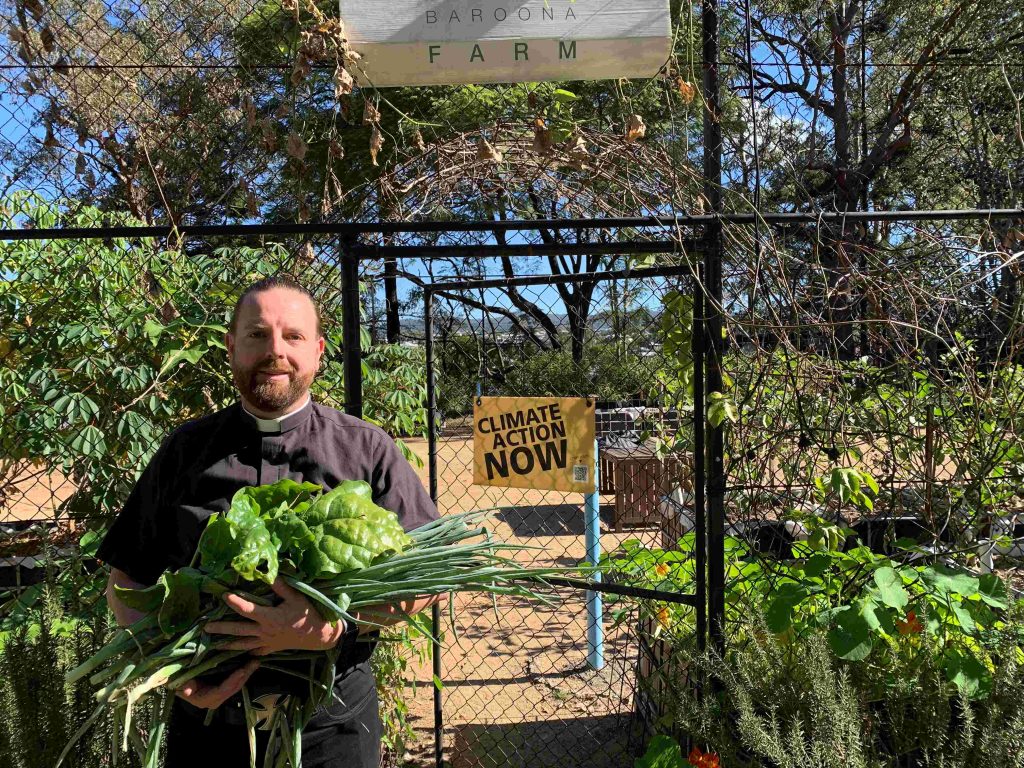What is your favourite Gospel of Matthew passage and why? | Anna Deng, Sam Sigamani, Samuel Dow
Reflections
Three members of our Diocesan community tell us about their favourite passage from the Gospel of Matthew, including Anna Deng, The Rev’d Sam Sigamani and The Rev’d Samuel Dow

Anna Deng — Parishioner, St Bart’s, Toowoomba
My favourite line in Matthew’s Gospel is “Blessed are the peacemakers, for they will be called children of God” (Matthew 5.9). We have been studying The Beatitudes in school. We looked at them in an in-depth way and were asked to write about a role model or super hero whom we know demonstrates that Beatitude. I chose my dad because growing up I have seen him as a role model, super hero and second father to many others. One thing that is always set in my dad’s mind is peace.
Advertisement
This is my favourite line because I am shown a clear picture of what a peacemaker is through my dad every day. When I get a chance to talk to my family back in Africa, they always have something really nice to say about my dad. They remind me of how blessed I am to have him as a dad — they always have good stories to share about him. For example, a couple of years ago Dad assisted some South Sudanese orphan girls who were struggling to get an education. He was then sent a letter and a photo of the girls proudly wearing their school uniforms.
By saying this Beatitude, Jesus is saying that peace should be prioritised. It shows that he wants peace in all of us.

“Gospel books largely focus on the life and ministry of the adult Jesus. A very small portion is committed to Jesus’ childhood. This portion is very important — children can only identify with Jesus if they have a child Jesus to look to,” (The Rev’d Sam Sigamani from The Parish of Wynnum)
The Rev’d Sam Sigamani — Priest-in-Charge, The Parish of Wynnum
My favourite part of Matthew’s gospel is the infancy narrative (Matthew 2.1-23). Gospel books largely focus on the life and ministry of the adult Jesus. A very small portion is committed to Jesus’ childhood. This portion is very important — children can only identify with Jesus if they have a child Jesus to look to. The infancy narrative enables children to perceive a “child Christology”. As adults we often think of our saviour as an adult, and this focus can be transferred to our children — Jesus as the saviour adult. Baby Jesus here is a sought-after king. The noble Magi come all the way from the East to worship a child-king and child-Christ. What an honour! It makes me ask, “Do we honour our children? If so, how?”
Advertisement
The infancy narrative also describes the horrific bloodshed story related to the baby Jesus — the massacre of infants. It is an unpleasant story to share with children. It is the story of the child-Christ whose life was threatened, so he and his parents fled to Egypt as refugees to escape persecution. This story tells us that Jesus experienced the cross even when he was a child.
This infant Jesus survived and became the saviour. This Christ Jesus identifies with many children today who are victims of war, violence, persecution and abuse. He gives hope to them. He calls us as individuals and as a Church to protect and honour children in our midst.

“This passage demonstrates the nature of Jesus as an all-encompassing embrace of all whom he met on his journey. This radical welcome is evident in Jesus’ life, death and resurrection encounters,” (The Rev’d Samuel Dow — Chaplain, St John’s College within the University of Queensland and Manager of Baroona Farm)
The Rev’d Samuel Dow — Chaplain, St John’s College within the University of Queensland and Manager of Baroona Farm
My favourite passage in Matthew’s gospel is Matthew 25.31-46, “The Judgement of the Nations”.
Perhaps an unusual favourite passage because it speaks of judgement on those who don’t follow the ways of God. But it is the encouragement and challenge to the faithful that resonate with me.
Particularly poignant are the phrases relating to feeding the hungry, giving a drink to the thirsty, welcoming the stranger, clothing the naked, caring for the sick and visiting those imprisoned. These six actions of faithful and Godly living have become a mantra that shapes my life in relation to human beings, as well as to the whole of creation.
This is lived out in my ministry with Baroona Farm, as we seek “to grow food and community with and for the nutritionally vulnerable”. Feeding the hungry is a central aspect of this ministry — particularly refugees and people seeking asylum — as are the imperatives of welcoming, nurturing and caring for fellow humans where we can. By giving dignity to all people, we honour the image of God in all.
Through this we also stand by the 5th Mark of Mission, “striving to safeguard the integrity of creation, and sustain and renew the life of the earth.”
This passage demonstrates the nature of Jesus as an all-encompassing embrace of all whom he met on his journey. This radical welcome is evident in Jesus’ life, death and resurrection encounters. Regardless of our background or the mistakes we make, the grace and love of God is always taking a step towards us through love, calling us to do likewise.





